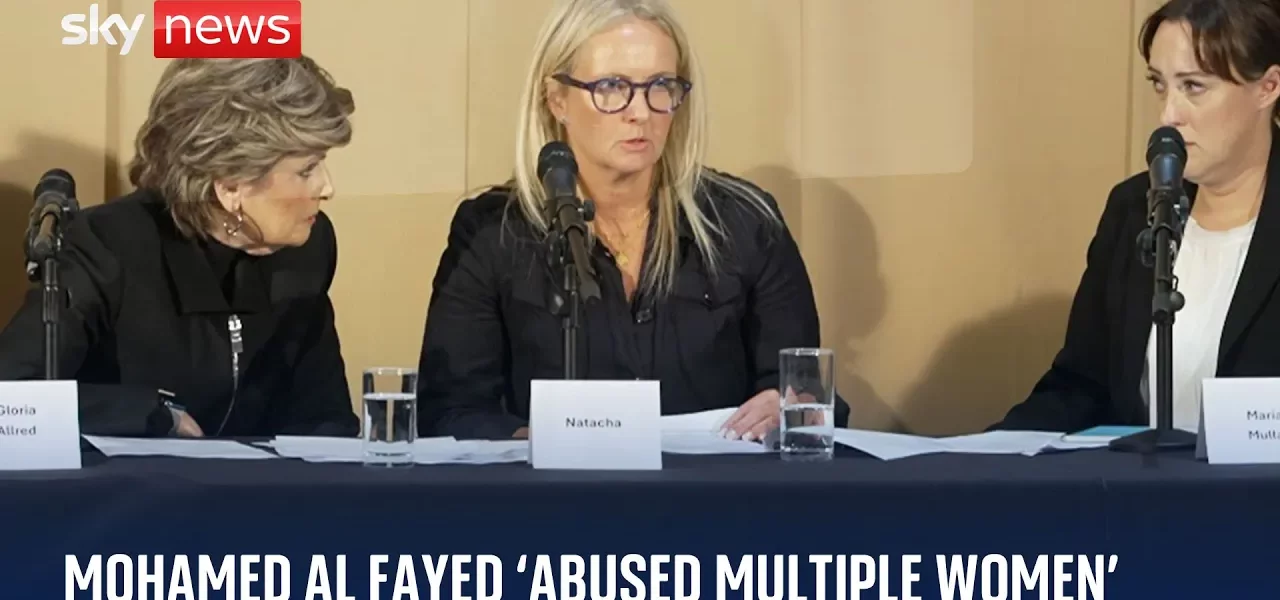Allegations Against Muhammad Al Fayed: A Deep Dive into Corporate Sexual Exploitation

This article explores the serious allegations against Muhammad Al Fayed, the former owner of Harrods, focusing on claims of sexual abuse and the systemic failures within the organization that allowed such behavior to persist.
Introduction
The legacy of Muhammad Al Fayed, the former owner of Harrods, has come under intense scrutiny following allegations of sexual abuse made by multiple women. These claims, brought forward by a legal team representing the victims, paint a harrowing picture of corporate sexual exploitation that has been described as one of the worst in history. The allegations include accounts of rape and sexual assault, highlighting not only the actions of Al Fayed but also the institutional failures that enabled such behavior to continue unchecked. This article aims to provide a comprehensive overview of the allegations, the responses from the accused parties, and the broader implications for corporate governance and accountability.
Main Allegations Against Muhammad Al Fayed
The allegations against Muhammad Al Fayed span several decades and locations, revealing a pattern of abuse that is both shocking and disturbing. Here are the key points regarding the allegations:
Allegations of Rape and Sexual Assault
- Five women have alleged that they were raped by Al Fayed.
- At least fifteen other former employees have accused him of sexual assault, with some victims as young as 15 at the time of the alleged incidents.
- Incidents reportedly occurred in various locations including London, Paris, and Abu Dhabi.
Corporate Responsibility and Cover-Up Claims
The legal claim against Harrods accuses the organization of failing to act on these allegations and covering up the abuse. This raises critical questions about corporate responsibility:
- What measures were in place to protect employees?
- How did the corporate culture at Harrods allow such behavior to persist?
- What role did management play in enabling Al Fayed’s actions?
The Impact on Survivors
The effects of Al Fayed’s alleged actions have had lasting consequences for the survivors. Many have reported severe psychological trauma, leading to long-term mental health issues:
Psychological Effects
- Some survivors have required psychiatric care.
- Many continue to struggle with intimate relationships due to their experiences.
- Common symptoms reported include nightmares, depression, and anxiety.
Personal Testimonies
During a recent press conference, one survivor, referred to as Natasha, shared her harrowing experiences:
“I walked into a lion’s den, a lair of cover-ups and manipulation.” Natasha described invasive medical examinations and sexual health checks conducted without her consent, highlighting the extent of the abuse and the systemic failures that protected the perpetrator.
Legal Proceedings and Corporate Responses
The legal team representing the survivors has emphasized the need for accountability, not just for Al Fayed, who passed away in 2023, but also for Harrods as an institution:
Call for Accountability
The lawyers assert that survivors deserve a platform to share their stories without fear of retribution. They emphasize that this case is about more than financial compensation; it is about justice and acknowledgment of the trauma experienced:
- “Meaningful accountability means having a proper voice,” said one of the attorneys.
- They have already spoken to 37 victims and expect more to come forward.
Corporate Response
In response to the allegations, Harrods issued a statement expressing their horror at the claims and acknowledging the organization’s failure to protect victims during Al Fayed’s tenure:
“We condemn these actions in the strongest terms and sincerely apologize to the victims.”
Harrods claims that its current policies prioritize employee welfare and differ significantly from those in place during Al Fayed’s ownership from 1985 to 2010.
Conclusion
The allegations against Muhammad Al Fayed reveal a deeply troubling narrative of abuse and corporate negligence. As survivors seek justice and accountability, it is crucial for organizations to reflect on their policies and practices to prevent such atrocities in the future. The need for meaningful change is evident, and it is the responsibility of both the legal system and corporate entities to ensure that victims are heard and supported. We encourage anyone with similar experiences to come forward and seek help.
“`




